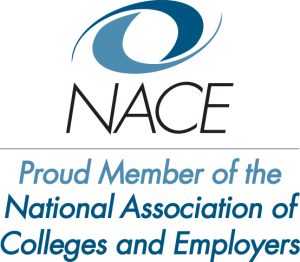3 Reasons to Consider Using the MBTI for Career Guidance
Preface
The NACE discussion boards recently posted a question about what career assessment you would use instead of the MBTI personality test. Understand that it's a trick question, because MBTI does not measure personality – at least as it's been understood by the field of psychology for the past 80 years.
I wrote a blog on the use of the MBTI for employment testing a few years ago and I thought I would update it for career development use here. Look, I don't want to yuck on anyone's yum but, just to be clear, the use of the MBTI for career guidance has no rational foundation in theory or research.
If you love the instrument, please stop reading here. I'm not going to change your mind.
If you are still reading, the satisfaction and meaning that individuals derive from career choice does not depend on an MBTI type. Nor does career success. Whether one is an introvert or extrovert has no bearing on how much they enjoy being a dentist. It only influences how much they talk when the patient's mouth is numbed and fall of dental instruments.
If you want to say that how I go about being a researcher depends on my feeling, judging, and perceiving, it’s not worth. But I know what I look forward to in that role is doing work that satisfies my desire to work on projects that pique my curiosity and have an impact on people. In other words, meets my investigative, enterprising, and social interests.
But if you are on the fence about the MBTI (or any other 16 box assessment), here's three reasons to consider doing so. (Spoiler alert: it’s satire.)
The Three Reasons
Like hundreds of U.S. higher education institutions, you may already be using the Myers-Briggs Type Indicator or MBTI. If you are, you know that it is a personality-based questionnaire that classifies people into one of 16 “types” based on their preferences for perceiving information and making decisions. The 16 types are often the basis of classic pickup lines such as “Are you an ESFP, or just happy to see me?”
Even if you are not using the MBTI, you have probably heard of it and you may be thinking of adapting it for use in your organization to help students make career choices. But should you? There are actually three good reasons to use the MBTI in your organization:
- You’ve used it in the past;
- Somebody else is using it;
- Somebody (a sales person) told you to use it.
There, that’s out, and it feels good.
Notice some of the reasons that aren’t on the list: It’s theoretically sound; it predicts performance; it improves individual decision making and improves student retention. They aren’t on the list, because they simply aren’t true.
But It Describes Me Perfectly
This is another reason career professionals often give for liking the MBTI. Even if that’s true (I won’t dispute it), how does your profile ringing true improve business processes, help students find their passion and make better career choices? And while I won’t dispute that your MBTI sounds a lot like you, I would point out that there is a long line of psychological research documenting something called the Barnum Effect. (Remember that P.T. Barnum pointed out that there was one born every minute – someone who would believe anything.) The Barnum Effect, confirmed by research, is that many people will find personal meaning in a series of general statements that could apply to anyone. For example, would you say this is generally true of you?
You have a need for other people to like and admire you, and yet you tend to be critical of yourself. While you have some personality weaknesses you are generally able to compensate for them. You have considerable unused capacity that you have not turned to your advantage. At times you have serious doubts whether you have made the right decision or done the right thing.
Most people would agree that is characteristic of them, but it is not drawn from a personality test, but pulled randomly from an astrology book found at the grocery store. An astrology book. By the way, as a side note, the MBTI is based on a very old theory of personality by Carl Jung. Jung was very interested in astrology and it is believed he tried to incorporate astrological concepts into his psychological theories.
But the point here is that I can show 100 people their MBTI profiles and 95 will feel the profile accurately describes them. But we know from extensive (actual) psychological research that I could have shown the randomly generated profiles and probably 90 would feel the same way!
But the MBTI Reseller Said It Is a Valid Test
Are you sure? Validity has a lot of different meanings, but fundamentally refers to whether the test measures what it says it does, or predicts meaningful outcomes. The Myers-Briggs Test Manual itself is very cautious about how it characterizes the validity of the MBTI. Essentially, all scores on the MBTI do are predict scores on other psychological tests of similar factors (e.g., another test of thinking v. feeling). That’s it. There is almost no evidence that MBTI types correlate with or predict anything! Here is how one writer, the chair of the psychology department at Marietta College put it:
Finally, there is no evidence to show a positive relation between MBTI type and success within an occupation. That is, there is nothing to show that ESFPs are better or worse salespeople than INTJs are. Nor is there any data to suggest that specific types are more satisfied within specific occupations than are other types, or that they stay longer in one occupation than do others.
But I Don’t Know What Else to Use
Fortunately, you have come to the right place. PathwayU uses psychologically sound measures, validated by science, to help students understand themselves, explore career options, and make career choices. Our career matches are based on our patented algorithm that uses a student’s interests and values to suggest occupational paths they will find interesting and meaningful. Science shows that when students pursue paths consistent with their core interests, they do better in school and have greater career success and career satisfaction (e.g., see this article published by the Association for Psychology Sciences). We add in a measure of workplace preferences to guide students when they are seeking internships and post-graduation jobs. We even have a measure of personality based on the most widely researched psychological framework.
We’d love to have you explore our career decision platform and see how they can help you guide students and improve student services. But even if you don’t adopt our tools, I hope you take a minute to question why you really think you should be using an assessment tool based on:
- An outdated theory, that
- Pigeonholes people into a complex array of types, and that
- Doesn’t really predict anything at all.
Just sayin’.
-1.png?width=288&height=67&name=PathwayU_PGLogo%20(1)-1.png)










